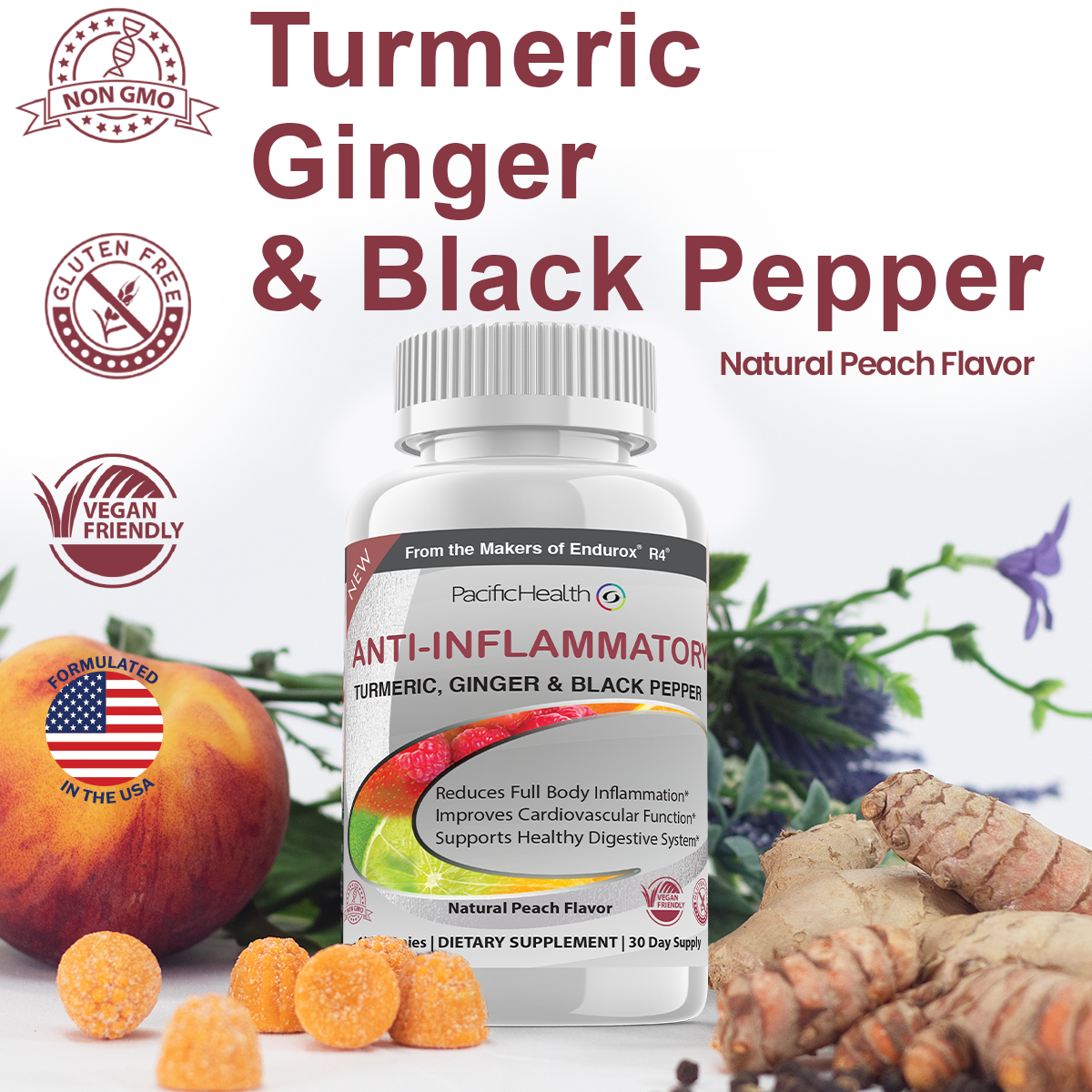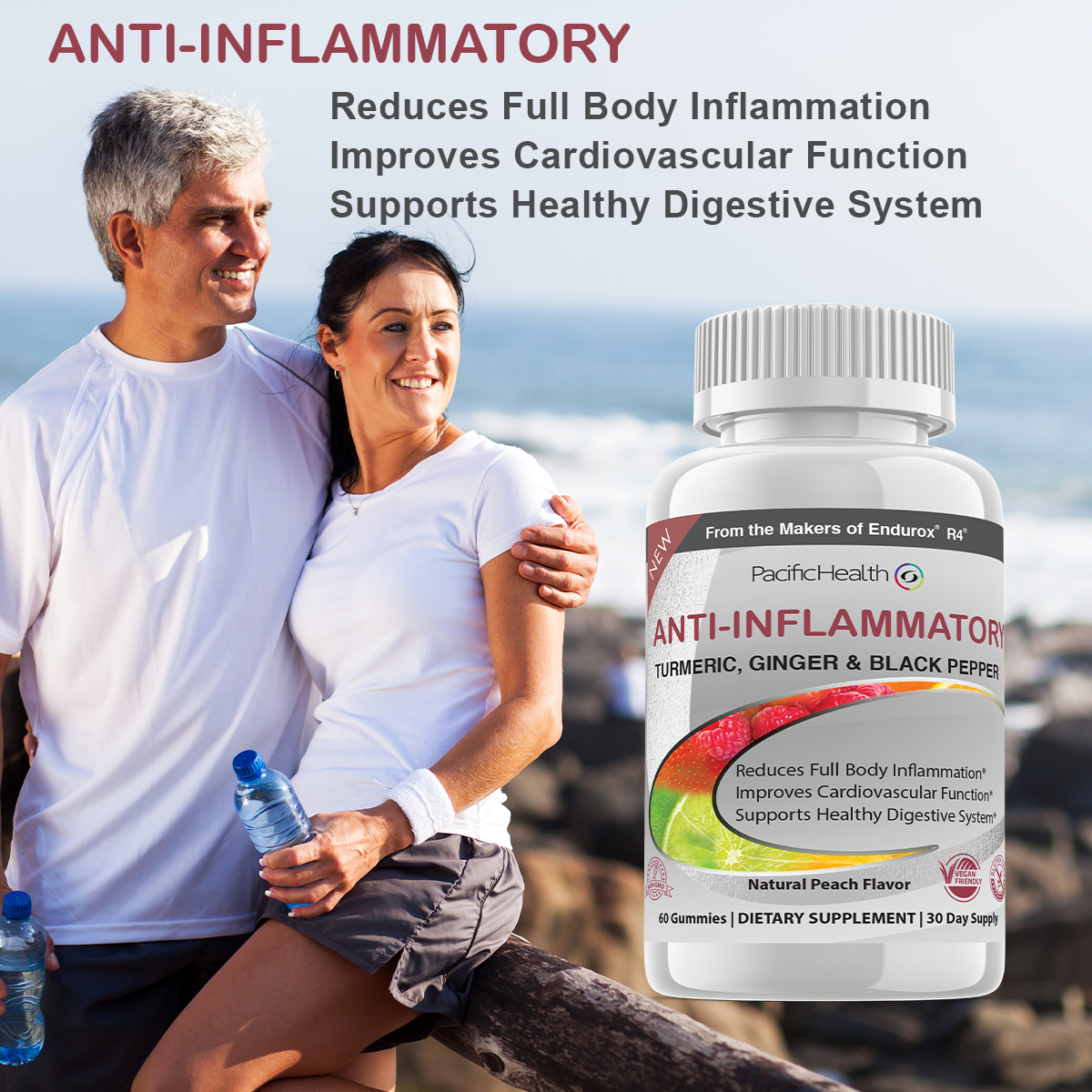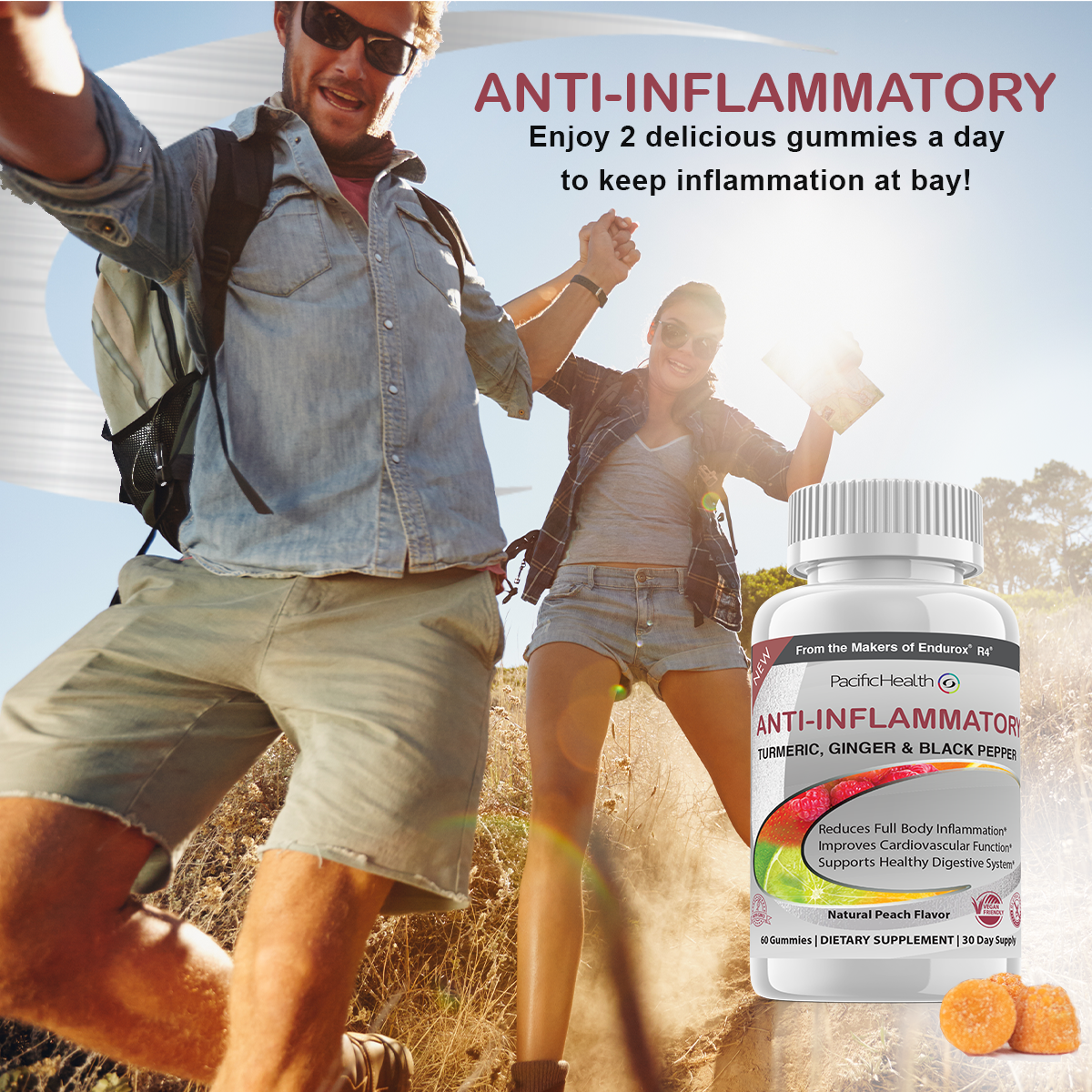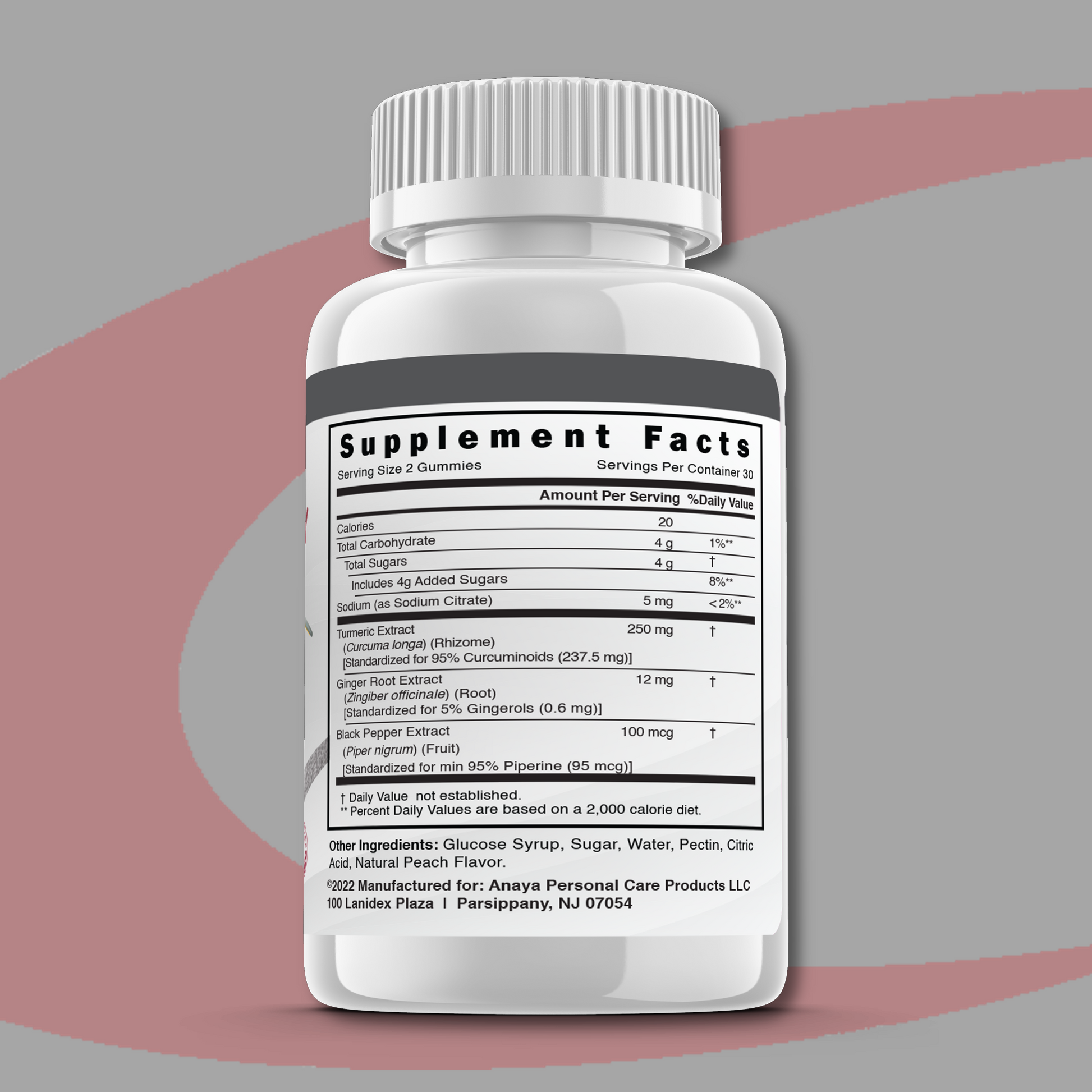Anti-Inflammatory
Anti-Inflammatory
• Reduce Full Body Inflammation*
• Improve Cardiovascular Function*
• Support Healthy Digestive System*
30 Day Supply – Serving Size: 2 Gummies
Natural Peach Flavor
Availability:Out of stock
Recurring Order?
Couldn't load pickup availability
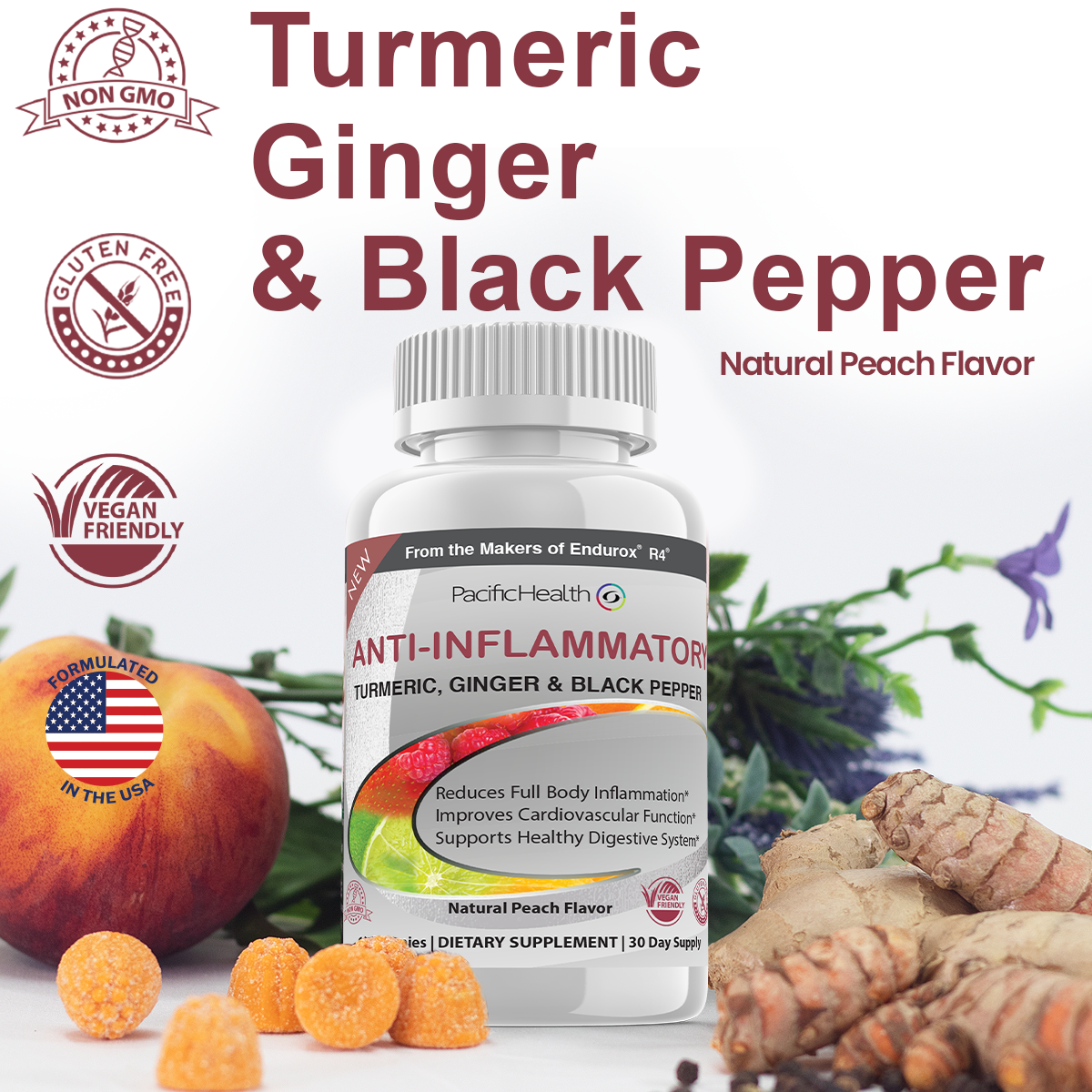
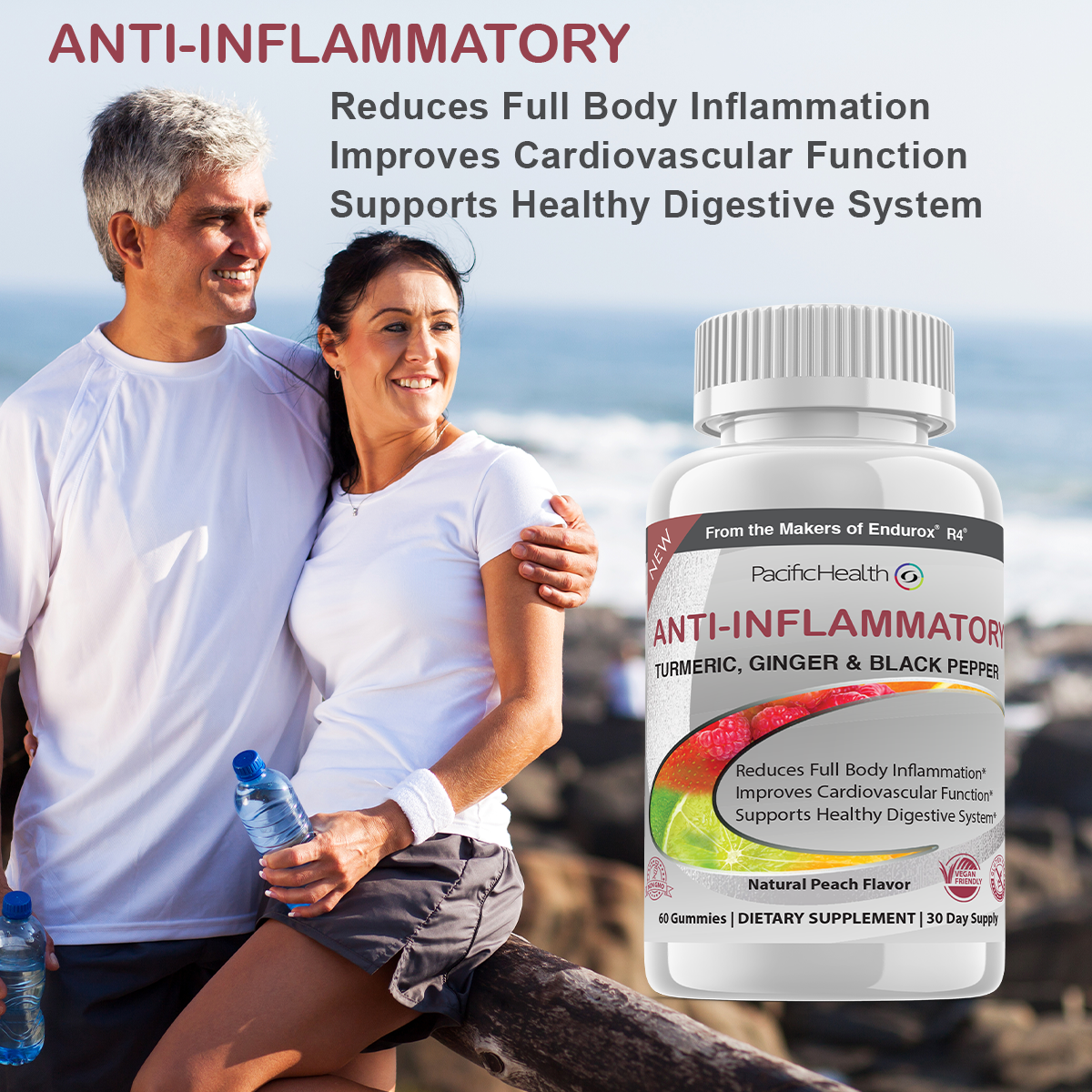
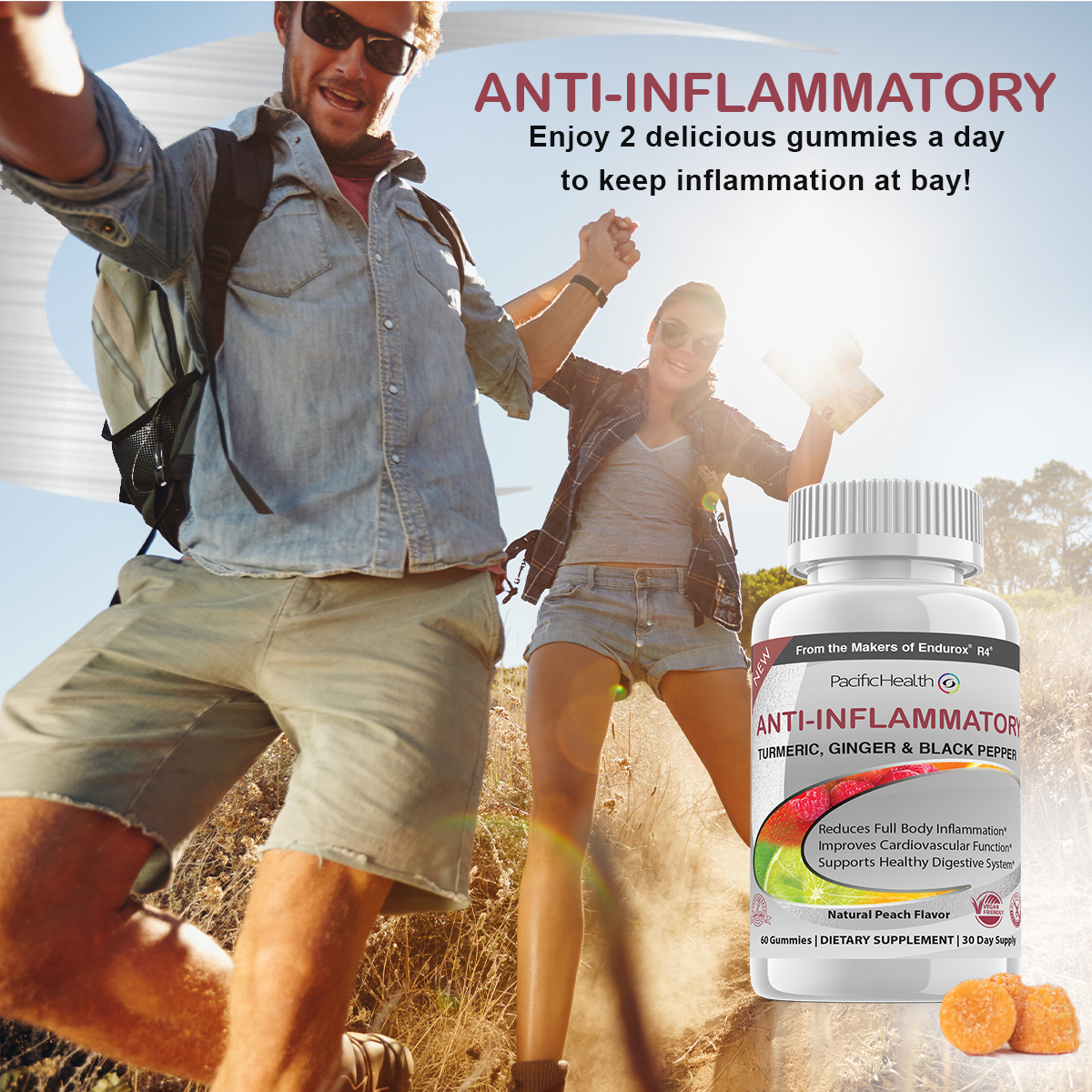
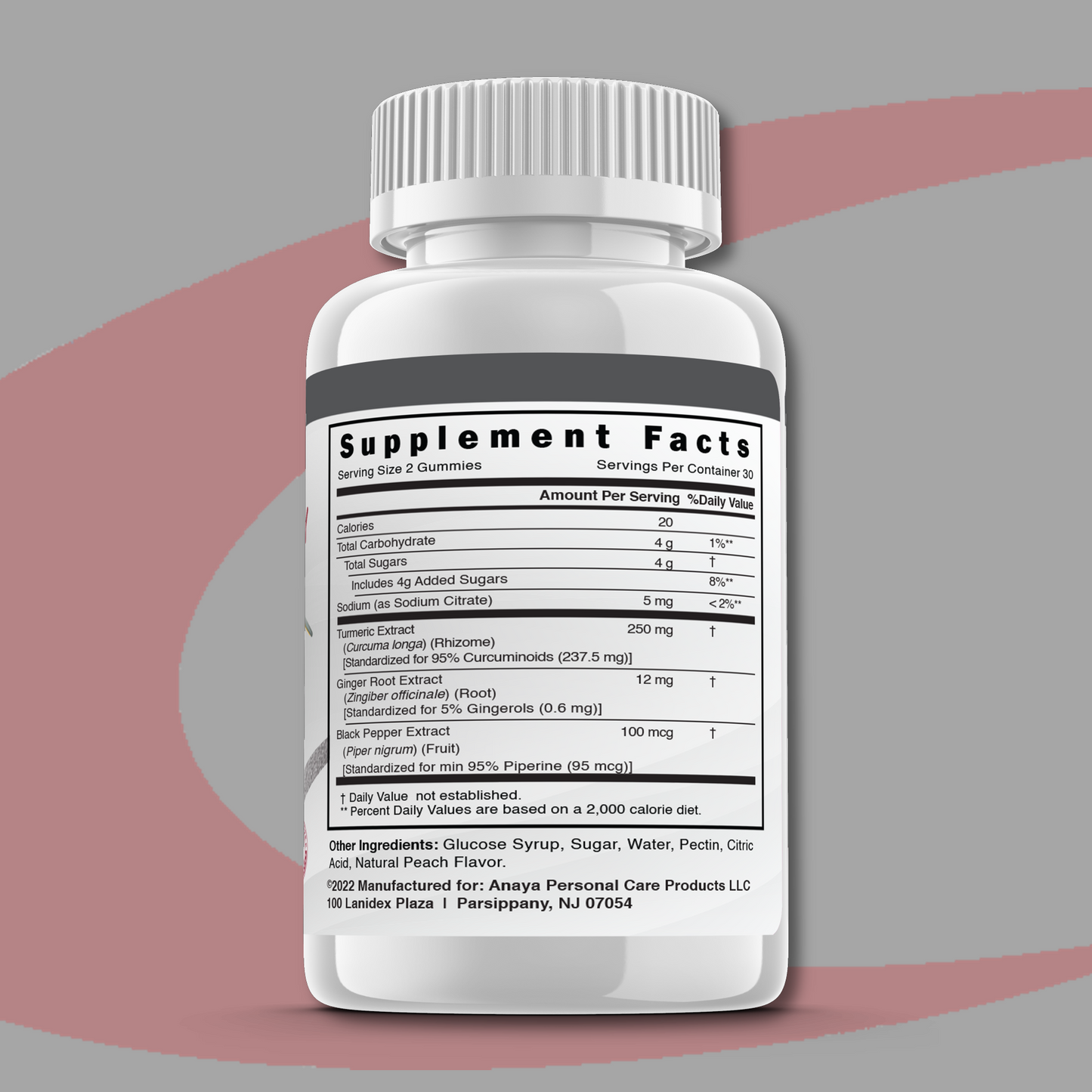
A Delicious Way to Take Your Daily Turmeric Supplement!
Turmeric Curcumin sourced from the turmeric root (Curcuma longa) along with Ginger (Zingiber officinale) have long been used in traditional anti-aging compounds and medicines around the world to support fatigue, better joint & muscle health, improve the condition of the skin. High in phenolic compounds, antioxidants, and anti-inflammatory agents, both are also traditionally used to relieve pain and enhance immune function, helping the body protect against long-term inflammation.
Sustained inflammation caused by age and poor diet has been linked to many chronic health problems. A Turmeric & Ginger supplement is rich in antioxidants and anti-inflammatory compounds and can assist you in maintaining a healthy brain and body from childhood through adulthood and into old age.
Turmeric Curcumin Extract–One of the most studied ingredients in herbal medicine, turmeric curcumin is traditionally used to improve many chronic conditions relating to inflammation.
Ginger Extract – Ginger contains the phenolic compound gingerol, with known powerful anti-inflammatory properties that help to decrease pain.
Black Pepper Extract (Piperine) – Piperine can enhances curcumin absorption in the body by up to 2,000%. Together, they may reduce inflammation and improve digestion!
Directions: Simply Take 2 Peach Flavored Anti-Inflammatory Gummies Daily.
No more swallowing large capsules or tablets!

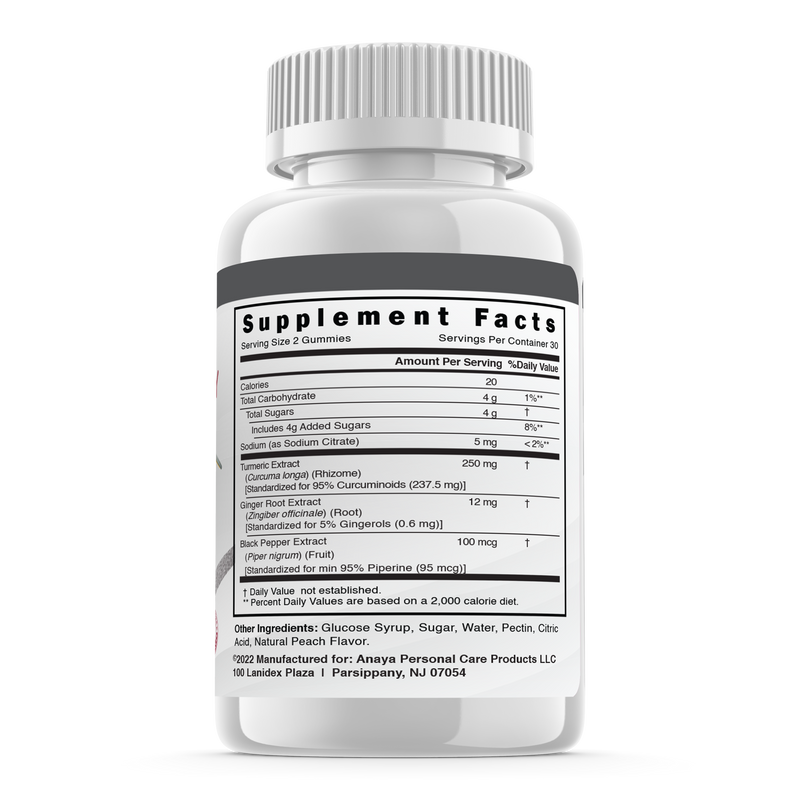
Turmeric is considered a safe, nontoxic, and effective alternative for many conventional drugs due to its distinguished therapeutic properties and multiple effects on various systems of the body.
Research to date suggests that chronic inflammation, oxidative stress, and most chronic diseases are closely linked, and the antioxidant properties of curcumin can play a key role in the prevention and treatment of chronic inflammation diseases.
The study shows that in the dosages used, piperine enhances the serum concentration, extent of absorption and bioavailability of curcumin in both rats and humans with no adverse effects. Piperine is a natural substance that enhances the absorption of curcumin by 2,000%.
Curcumin is commonly used for its antioxidant, antimicrobial, anti-inflammatory, antitumor, anti-diabetic, hypolipidemic, hepatoprotective, and neuroprotective effects. Curcumin has been greatly reported to prevent many diseases through modulating several signaling pathways, and the molecular bases of its anti-tumor bioactivities are imputed to the antiproliferative, anti-inflammatory, pro-apoptotic, anti-angiogenesis and anti-metastasis effects.
The anti-inflammatory effect of curcumin is most likely mediated through its ability to inhibit cyclooxygenase-2 (COX-2), lipoxygenase (LOX), and inducible nitric oxide synthase (iNOS). COX-2, LOX, and iNOS are important enzymes that mediate inflammatory processes. Improper upregulation of COX-2 and/or iNOS has been associated with the pathophysiology of certain types of human cancer as well as inflammatory disorders.
In this study, researchers assessed behavioral performance and hippocampal cell proliferation in aged rats after 6 and 12 week curcumin-fortified diets. Curcumin enhanced non-spatial and spatial memory, as well as dentate gyrate cell proliferation as compared to control diet rats. The results suggest a neurogenesis- and cognition-enhancing potential of prolonged curcumin treatment in aged rats, which may be due to its diverse effects on genes related to growth and plasticity.
Cardiac diseases are the leading cause of mortality worldwide and cause considerable harm to human beings. Numerous studies have suggested that curcumin exerts a protective role in the human body whereas its actions in cardiac diseases remain elusive and poorly understood. The information compiled here may serve as a comprehensive reference of the protective effects of curcumin in the heart, which is significant to the further research and design of curcumin analogs as therapeutic options for cardiac diseases.
In healthy middle-aged and older adults, 12 weeks of curcumin supplementation improves resistance artery endothelial function by increasing vascular nitric oxide bioavailability and reducing oxidative stress, while also improving conduit artery endothelial function.
Curcumin, a polyphenol extracted from the rhizomes of Curcuma longa, belong to the most promising group of bioactive natural compounds, especially in the treatment of several cancer types. As reported in the present review, curcumin exhibits anticancer ability by targeting different cell signaling pathways including growth factors, cytokines, transcription factors, and genes modulating cellular proliferation and apoptosis.
For prevention and treatment of Alzheimer's disease, curcumin has been shown to effectively maintain the normal structure and function of cerebral vessels, mitochondria, and synapses, reduce risk factors for a variety of chronic diseases, and decrease the risk of Alzheimer's disease. The effect of curcumin on Alzheimer's disease involves multiple signaling pathways: anti-amyloid and metal iron chelating properties, antioxidation and anti-inflammatory activities.

